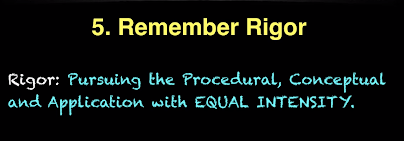On Feedback...
Consider, for example, how students use grades. They see them as a reflection of their abilities, and sometimes more deeply as a reflection of their ability to learn at all. Grades shape their self-efficacy in particular skills (“I’m not good at math”), but they also shape learners beliefs about their intelligence (“I’m not good at learning”), and eventually, they can begin to shape their identities (“I’m not a very smart person”).
Ko, A. J. (2019, March 16). Grading is ineffective, harmful, and unjust — let’s stop doing it. Medium; Bits and Behavior. https://medium.com/bits-and-behavior/grading-is-ineffective-harmful-and-unjust-lets-stop-doing-it-52d2ef8ffc47
I have experienced the truth in this argument as both a teacher, student, and parent. And while it does tie back to individual mindset, that's not what I want to talk about here.
I want to talk about the crazy amount of time that many of us put into grading assignments (many have told me tails of how they spend their hours) and propose a (maybe) better way. During this time of COVID-19 and Hybrid Learning and Distance Learning, some kids online while others are in class with us, then flip-flopping those groups...it's complicated. It's hard. It's frustrating. It's DIFFERENT.
In times that are different, we have an opportunity to change practices. I do not believe that some of the grading practices from 8 months ago are sustainable with all of the other changes that teachers have been making. So although I could spend time writing about mindset and its relationship with grading/feedback let's instead look at how we can do better for no other reason than saving our sanity. Then maybe, just maybe, we might see some shifting mindsets and improved educational outcomes as a side-effect.
So let's first talk about assignments. These should be formative indicators of how a student is learning concepts and skills during a unit of study. They are practice. Whether in theater, athletics, or orchestra, it does not matter how badly you mess things up during your rehearsal (practice).
Those are treated as opportunities to grow and improve, and we don't penalize participants during those times. Let's make sure that we treat our learning of academics in the same light. By and large, coaches, conductors, directors focus on improvement based on collective need during their whole group practices. Occasionally, as the need arises, some participants may get some small group or individual feedback but they do not do that every day with every bit of new work that is done. Let's treat student academic work the same! If you must give "points" give them credit for doing the work and being present in it, not for correctness.
Now, onto my actionable thoughts about feedback:
Provide students with the correct answers to use immediately. They need it. Students can take a picture, scan, etc. of their work to show you what they did. As the teacher, don’t try to correct all their working, provide them with a bigger comment or question that might further their work. I had a great conversation earlier today with some teachers and we talked about letting students pick one problem from one of the days this past week and record an explanation on FlipGrid to explain themselves. In reflecting after our meeting I thought that it might be equally (or more valuable) to ask students to record one of their problems that they found challenging and discuss what they did to work through that challenge.
As you look at student work, create a FAQ of sorts or a screencast of common mistakes or misconceptions. Share this with all students. You can ask them to post a comment that summarizes your feedback or something that they noticed within that feedback as part of their next assignment.
Remember that students will need some explicit instruction on how to interact with something new. Sara Van Der Werf has an excellent recent blog post about how and why we must do this.
At the heart of this is how we formatively look at student learning and how we RESPOND to it. I attended a webinar this morning about what formative assessment can look like in an online environment. The graphic above was shared out giving some different ways to interact with students that can provide us with some rich non-numeric data.
Here's my last bit. Whatever we do needs to foster relationships with our students. Everything that I am reading and seeing is overwhelmingly talking about NOT GRADING things that don't need to be graded and instead give meaningful feedback. Like I said initially, to sustain sanity (for those of us who have not lost it already) the way feedback is given can and should change.
Be well and keep being awesome!!






Comments
Post a Comment